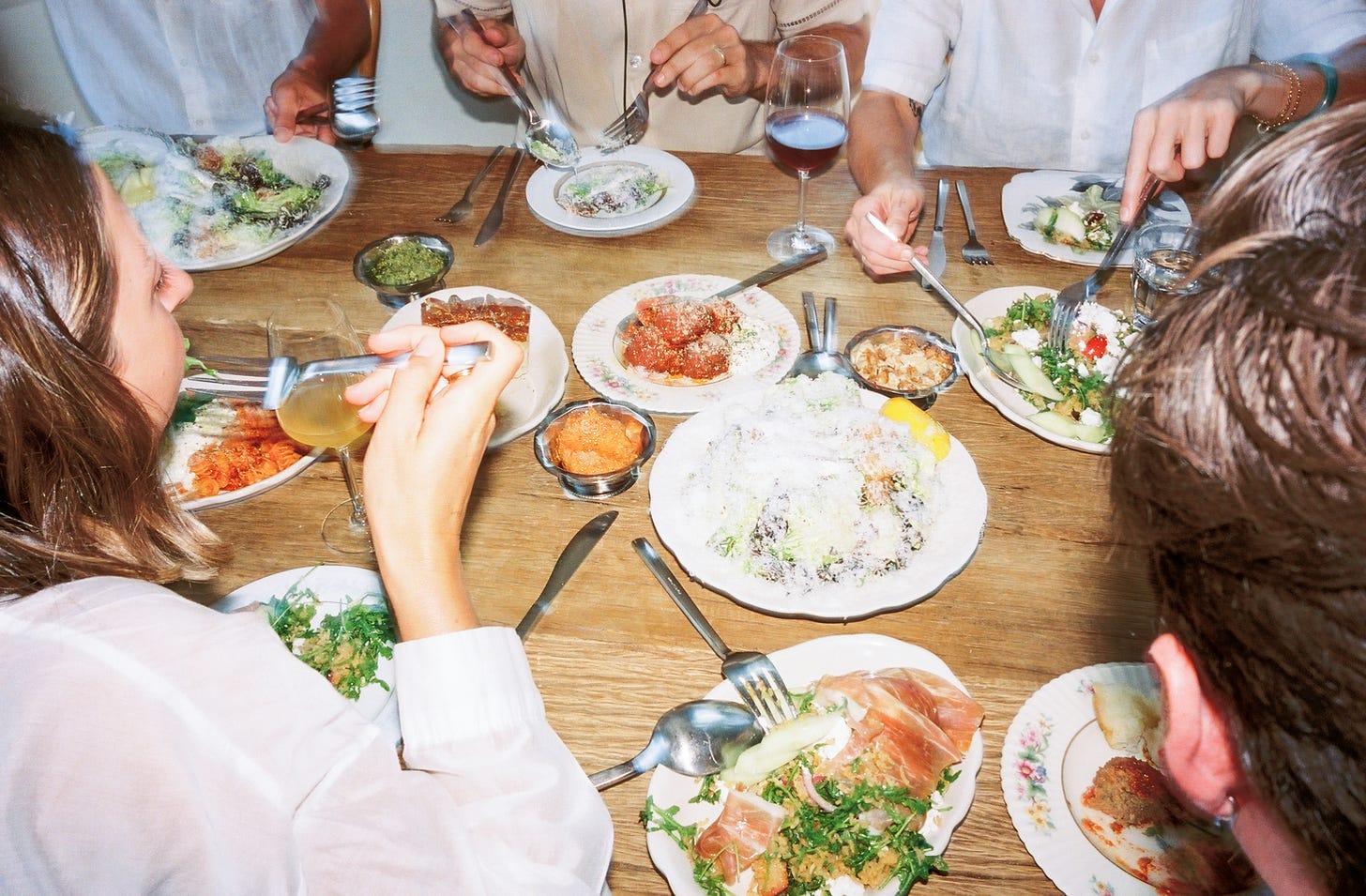Clearly and Unequivocally
From family meal to the public square, how tone, clarity, and decency still matter.
The air feels heavier today. Not in the meteorological sense — though Los Angeles has had its share of muggy, post-apocalyptic sunsets this year — but in the way people talk. The way we’ve learned to lace every sentence with a little suspicion. The way disagreement now feels like declaration.
I’ve caught it in myself too.
That twitch of defensiveness. That instinct to sort people into boxes before they even open their mouths. Maybe it’s self-protection. Maybe it’s fatigue. But it’s also poison. And it’s seemingly everywhere. In the news, in the kitchen, in the way we post and scroll and decide who’s “us” and who’s “them.”
Barack Obama once said:
“We should soundly reject language coming out of the mouths of any of our leaders that feeds a climate of fear and hatred or normalizes racist sentiments; leaders who demonize those who don’t look like us, or suggest that other people — including immigrants, those who practice different faiths, or people who don’t look like us — are somehow less worthy, less human. It has no place in our politics and our public life. And it’s time for the overwhelming majority of Americans of goodwill, of every race and faith and political party, to say as much — clearly and unequivocally.”
I read that line recently and it paused me for a moment. Clearly and unequivocally.
There’s no room for hedging in those words. No comfort in staying quiet. He’s talking about language as climate. The atmosphere we all breathe. And lately, we’ve been choking.
Just last week, one of our new teammates — who’s in grad school for public policy — shared something at family meal that made my stomach turn. Her university, one of the most respected in the country, has begun quietly discouraging open discussion around certain topics. Professors have been told not to teach certain themes or readings for fear they might be “divisive.” These are supposed to be rooms built for critical thinking. For disagreement. For democratic discourse.
But fear is winning.
And in a way, it makes sense. What do we expect to happen when the highest forms of leadership in our country communicate in tweets riddled with spelling errors and rage? When the model for public conversation is all caps and insults and ten-second sound bites?
We’re learning to speak like our leaders. And it seems like some of them never learned how to speak to begin with.
Words decide the weather.
They can raise the temperature or cool the room down. A chef’s tone shifts a whole kitchen. A host’s greeting can disarm an entire night. A leader’s words can turn neighbors into enemies & strangers into allies.
At Companion, I think about that every day. We build culture with language. The tiny phrases… ‘Yes, chef.’ ‘Take your time.’ ‘Welcome in.’ They are small acts of resistance against the static outside. When we talk to each other with care, we’re setting a table that says: you belong here, whoever you are, wherever you’re from.
And somewhere along the way, we forgot that.
We forgot that the United States of America is a shared experience. It’s not a scoreboard or a purity test, it’s not a map divided into red and blue. It’s a living, breathing collaboration. A messy, beautiful, ongoing experiment in coexistence.
The grounds we find ourselves standing on, the dirt which many of us were bred and the same dirt many of us have traveled far and wide to touch is muddy now. With so much information, constant comparison, and noise. It’s hard not to think it’s time to shout louder. But it’s not, it’s time to speak clearly. To stop waiting for politicians to fix the climate, rather to start adjusting the temperature right where we stand.
The test isn’t whether we can agree on everything. It’s whether we can keep talking when we don’t.
Whether we can hold space for each other without defaulting to contempt.
I don’t buy what the newsroom tells me to believe about my neighbors — or about my fellow Americans in other states. I know there are bad eggs, but bad eggs don’t ruin the dozen by existing. They ruin the dozen when we boil them, peel them, stir them into the pot together and let them define the whole batch.
I’ve lived in 5 different parts of the US and I’ve visited more than that. Every corner I go, I find people with the same goals as me, the same worries I have, the same anxieties, the same desire for love.
So here’s my small manifesto:
Reject the hatred.
Resist the lazy language that divides.
Refuse the cynicism that whispers it’s all pointless anyway.
Speak with warmth.
Lead with decency.
Say what you believe clearly and unequivocally.
Love,
Nick


